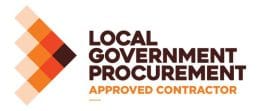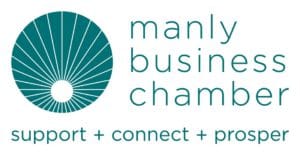Aaargh! You’ve been putting it off for weeks. Writing that pesky first resume. Don’t despair! Follow our top ten tips below and you’ll be one step closer to securing your dream job.
- Keep It Simple
So, you might want to experiment with font and colour. Great if you are a wannabee graphic designer. If not, stick to a readable font, like Arial, Times New Roman or Calibri, throughout. You can still play around with bold and italics to highlight important features.
If your resume runs to more than one page, consider including a header or footer with your name and contact details. Sometimes, recruiters print out resumes and this ensures none of your info goes astray.
- Contact Details
Casual voice mail messages, such as “Hey, dude. Surf’s up…etc.” (Yup, we’ve heard them all before) are a big no-no. Record something short and polite. You’re looking for work, not catching your next set. Equally, blasting your caller with on-hold music is not cool.
Check your email message is professional and appropriate. How about keeping shazzarocks@hotmail.com for your personal contacts, and using sharon.rock@hotmail.com in your job search instead?
- Education
List your high school name, location, and dates of attendance.
If applicable, also list your university/college name, location, course title, dates of attendance, and qualification level achieved.
Impressive final grades? Make sure you include them too.
- School/College/University Achievements
Think about what you achieved at school, college and/or uni. Did you hold a position of special responsibility, e.g. class captain? Did you receive any awards? Were you a member of any school teams, music groups, or associations?
This section shows that you did more than just turn up for class and sit the end-of-year exams.
- Personal Attributes
Tell the recruiter what qualities you offer them as an individual. Ask others, such as teachers, university professors, and close family friends, how they would describe you. Or check out your past school reports. Focus on positive descriptions, e.g. motivated, keen to learn, reliable, honest, good team player, and strong communicator. And don’t list too many!
- Skills
This section should focus on your proven abilities, e.g.
Intermediate Software: Word, Excel, Outlook, Internet
Basic Software: PowerPoint, Photoshop
Languages: English native speaker, fluent Italian (written and spoken)
Bear in mind that recruitment agencies and potential employers will often test your software skills, especially if they are essential for the role you are applying for.
- Work Experience
Demonstrating work experience, whether paid, casual or voluntary, can make or break your resume.
Include details, such as employer name, location, role, and dates of employment. And then show how you made a difference. What were your responsibilities in the role? What did you achieve?
If you worked on the crew at Macca’s, you could talk about working as part of a team, delivering top quality customer service, and the challenges of producing results in short timeframes.
If you helped out in the family business, focus on your contribution. Perhaps you designed a new spreadsheet to capture important information, or assisted customers in-store.
- Interests
Along with #5, this is your chance to tell recruiters and potential employers more about you as an individual. Interests should generally fall into three categories:
- Relevant to the job
If you’re applying for a role at a building consultancy, an interest in modern architecture could be a real plus. Just make sure you can talk about it in some detail.
- Showcase for your skills
Don’t just list one word, like “Sailing”, and leave it at that. Mention your participation in local regattas, and any good race results; include your role on the yacht club social committee.
- Plain quirky
Juggling, acrobatics, and collecting paperclips show your originality, and can be useful conversation openers at interview stage.
- Referees
Include the full name, job title, organisation, email and telephone number of two referees. Ideally, these should be people you have worked with, such as a shift manager or team leader. If you don’t have much prior work experience, you could always ask someone who knows you well, e.g. a family friend or high school teacher to be a referee.
Ask your referees before providing their details to recruiters and potential employers.
- Spellcheck
Run a spellcheck through your resume, then print out a copy and read it from start to finish. Ask a couple of trusted friends or family to look through the final draft. They might just find the one error you’ve overlooked.















